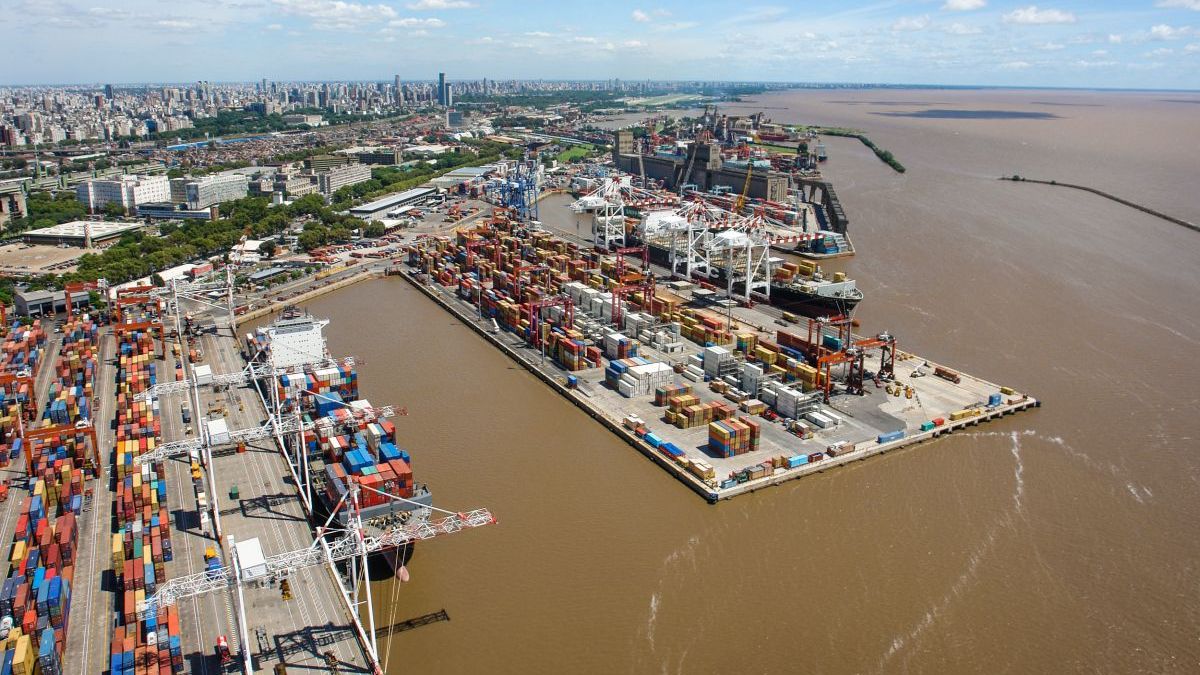He city government and deputies of the Civic Coalition (CC) They went out in tandem to complain to the administration of Javier Milei the full transfer of port of Buenos Aires from the orbit of the Nation to CABA, with the objective that the district has total autonomy, as established by the National Constitution.
On the one hand, the Buenos Aires Minister of Infrastructure, Pablo Bereciartuapublished an opinion note entitled “The port of Buenos Aires: a key infrastructure for the future of the City”, in which it ensures that, despite the progress made in other areas, for the jurisdiction to have full autonomy, the transfer of the port terminal remains.
“The port must continue to be used as logistics infrastructure, but with adequate urban and infrastructure planning, the area can mean a sustainable expansion of the city,” the official argued. At the same time, he specified that “with local management, the integration of this extensive area with the urban environment could be promoted, attracting private investments, generating employment, creating green areas and developing spaces that improve the quality of life of the neighbors.”
Bereciartua also recalled that many cities in the world, such as Hamburg, New York and Rotterdam, manage their own ports, “striking a balance between economic development and urban sustainability.” “In these cases, the local administration has made it possible to implement policies aligned with the needs of neighbors, promoting smarter urban planning and inclusive economic growth,” he concluded.
Port Buenos Aires 30AUG ignacio petunchi (13).JPG
Ignacio Petunchi
To understand the reason for the current situation, you have to go back a year and coins, to the end of 2023. It was around those days when the then president Alberto Fernandezwho was preparing to hand over command to Javier Milei, extended the port concession for three years, with the possibility of extending it again for another three years later.
Specifically, Fernández referred to the two operational concessions: Terminal 1, 2 and 3, belonging to Terminales Río de La Plata, of Dubai Ports; and APM Terminal 4, from Maersk.
In response to this situation and mirroring the City’s request, CC deputies Maximiliano Ferraro and Paula Oliveto presented a bill in Congress in that regard. In it, They refer to the constitutional reform of 1994 and to the ruling of the Supreme Court 2084/2017, in which the Justice reaffirms the competence and jurisprudence of CABA with the provinces within the framework of Argentine federalism.
Following this path, the initiative considers that “the transfer also contributes to reducing the duplication of functions between the national and local levels, which generates an optimization in the use of public resources and an improvement in the quality of the services provided to the community.” citizenship”.
In parallel, Ferraro and Oliveto specified that “To materialize said autonomy, the progressive transfer of functions, powers and assets that are currently administered by the National State, but whose scope of action is limited to the territory of the Autonomous City of Buenos Aires, is essential.”
Likewise, they stated that “the autonomy of the City implies that it must have powers and resources to manage local affairs efficiently and appropriately to the needs of its inhabitants,” and they pointed out that it is “a fundamental principle to guarantee that the “City can respond effectively to the challenges of a metropolis that concentrates a significant part of the economic, political and social activity of the country.”
Regarding the port of Buenos Aires, national legislators said that “it is a strategic infrastructure that influences urban planning, commerce and local transportation” and evaluated that its transfer will allow “integrate its administration into the development policies of the City, guaranteeing its sustainability and alignment with the needs of its inhabitants.”
The text also requires the transfers of the General Inspection of Justice (IGJ) and the Retiro terminal from the orbit of the national State to that of the City.
The complaints about the irregular situation of the port of Buenos Aires are not exclusive to politics. In recent times, various actors linked to the country’s trade and economy have raised similar complaints about the operation of Buenos Aires terminals.
At the end of last year, the head of the Argentine Industrial Union (UIA), Daniel Funes de Rioja, met with the Minister of Deregulation of the Nation, Federico Sturzenegger, to whom he raised his concern about the high logistics costs of the ports, that hinder Argentine exports.
Previously, the UIA had explained that “port terminals have taken advantage of the opportunity to renegotiate contracts under which the maximum price at which they can establish their rates for services was eliminated through Decree 299/23.” This process resulted in an increase of more than 25% in the cost in dollars.
According to a survey carried out by industrialists, Argentine ports have the most expensive operating costs in the region, above Brazil, Chile, Colombia, Peru and Uruguay.
Source: Ambito




